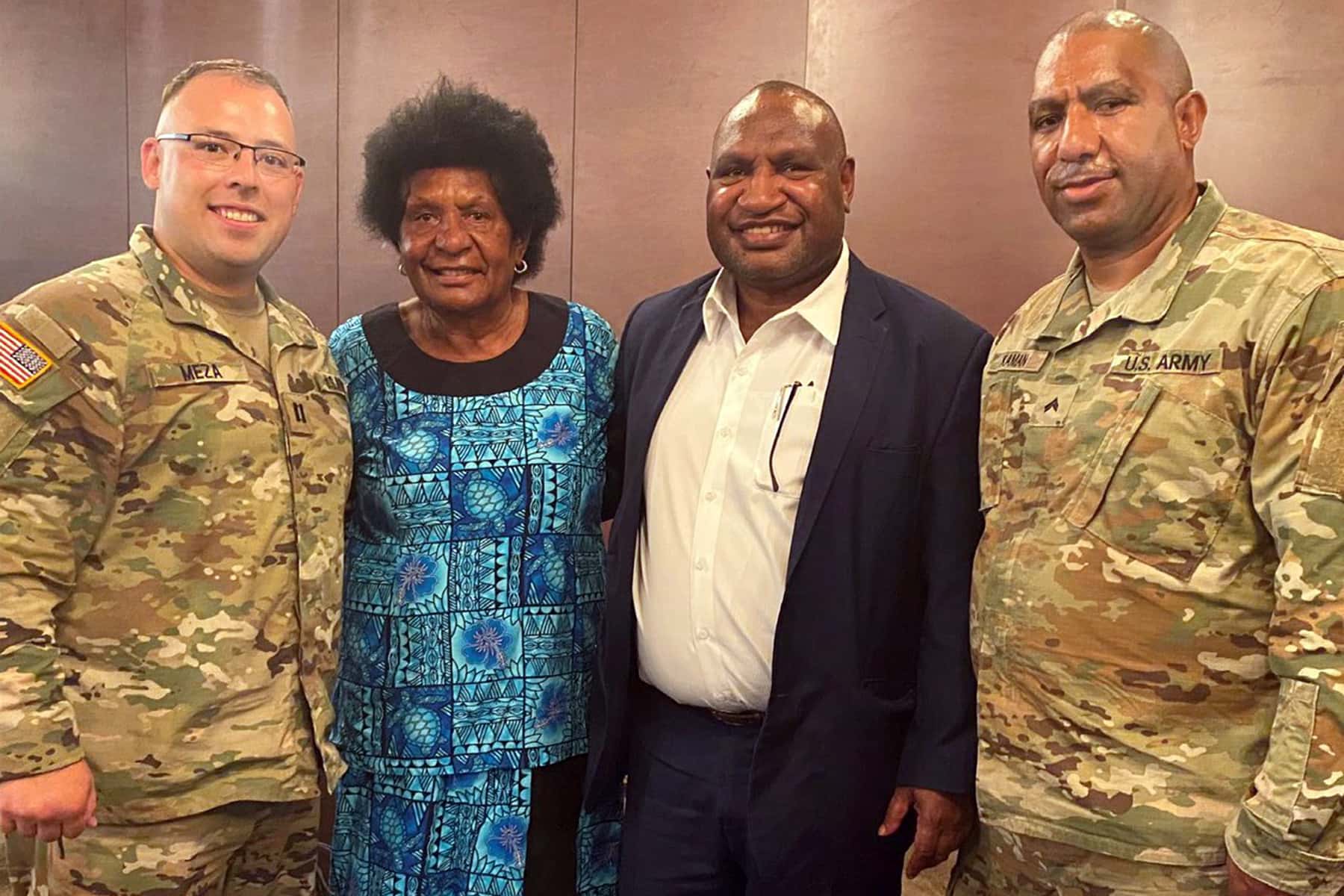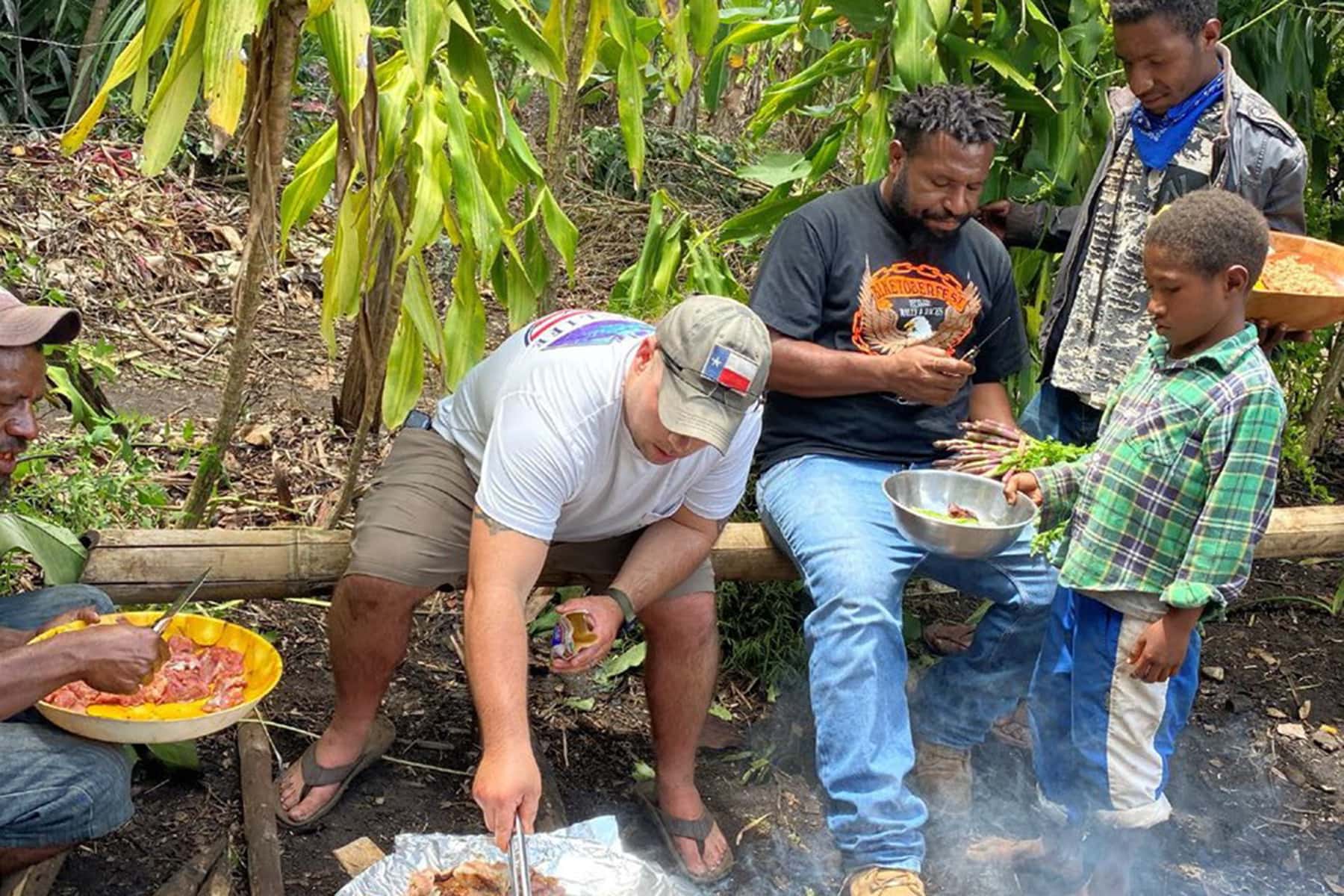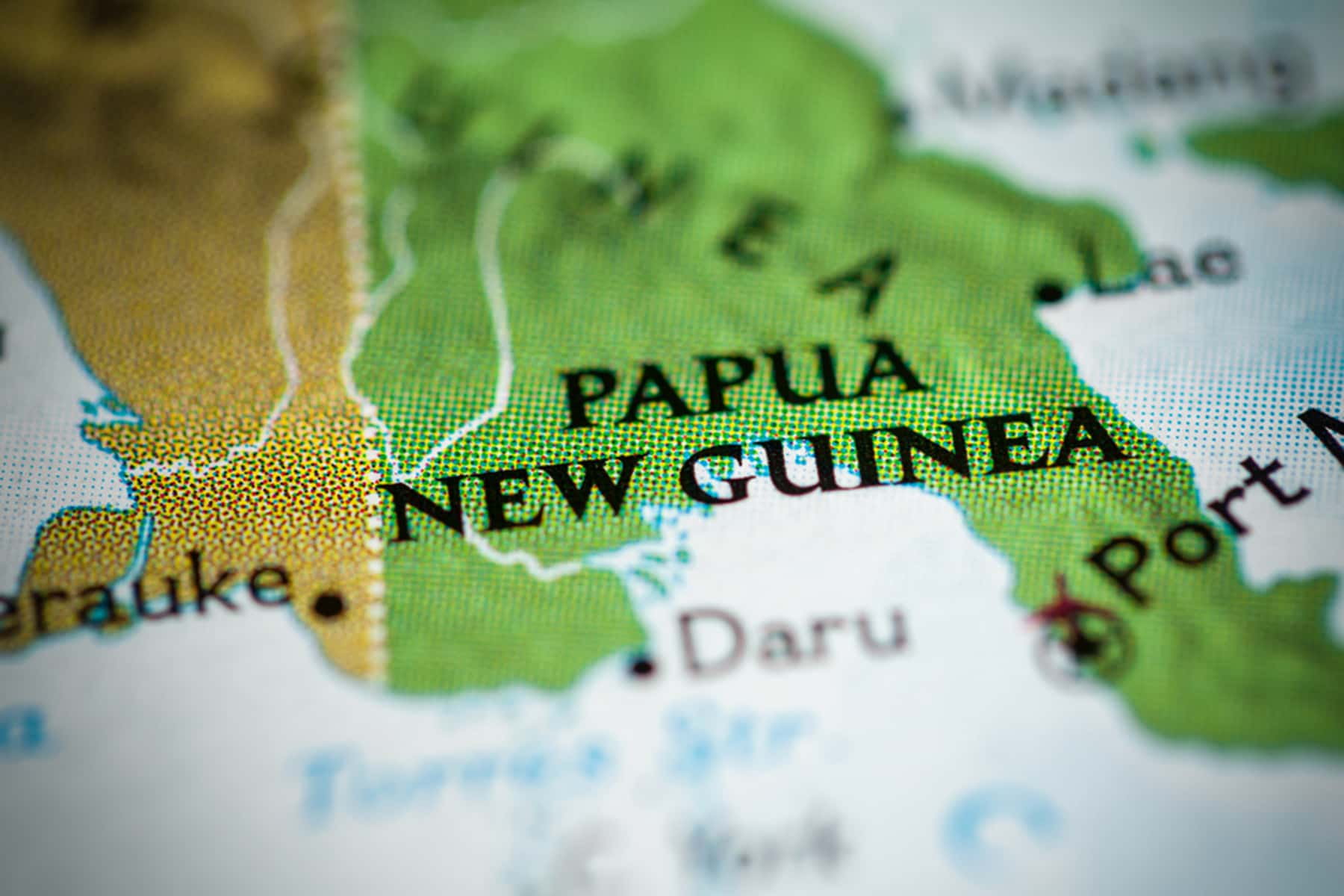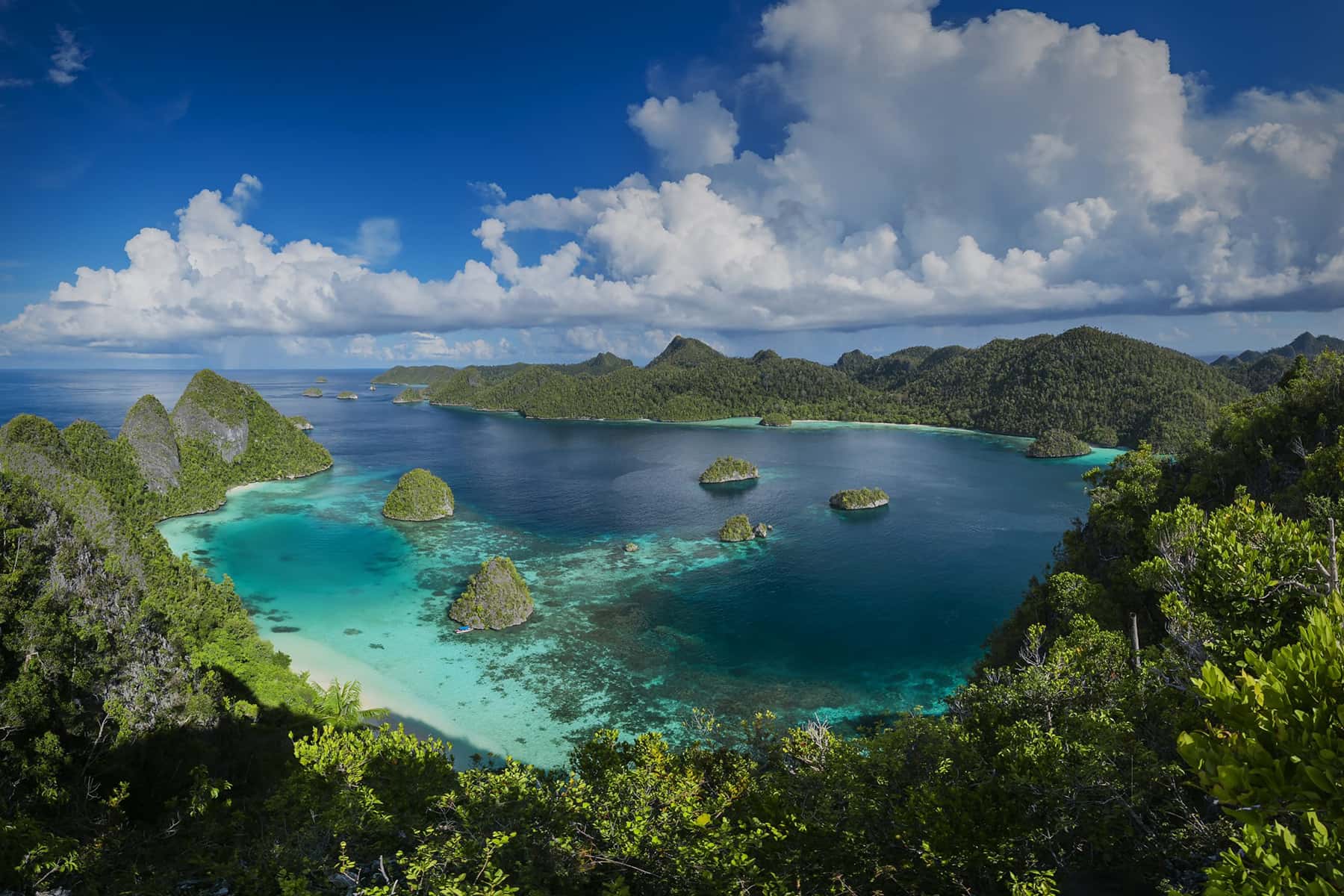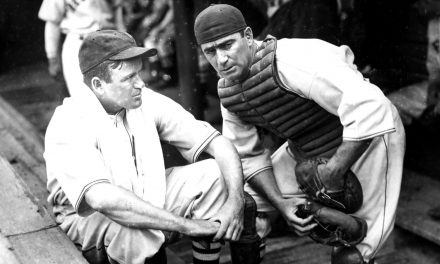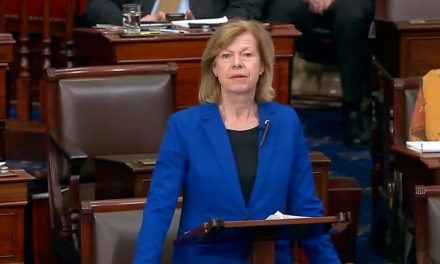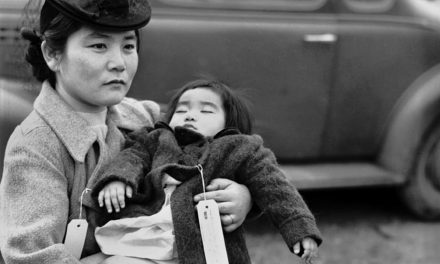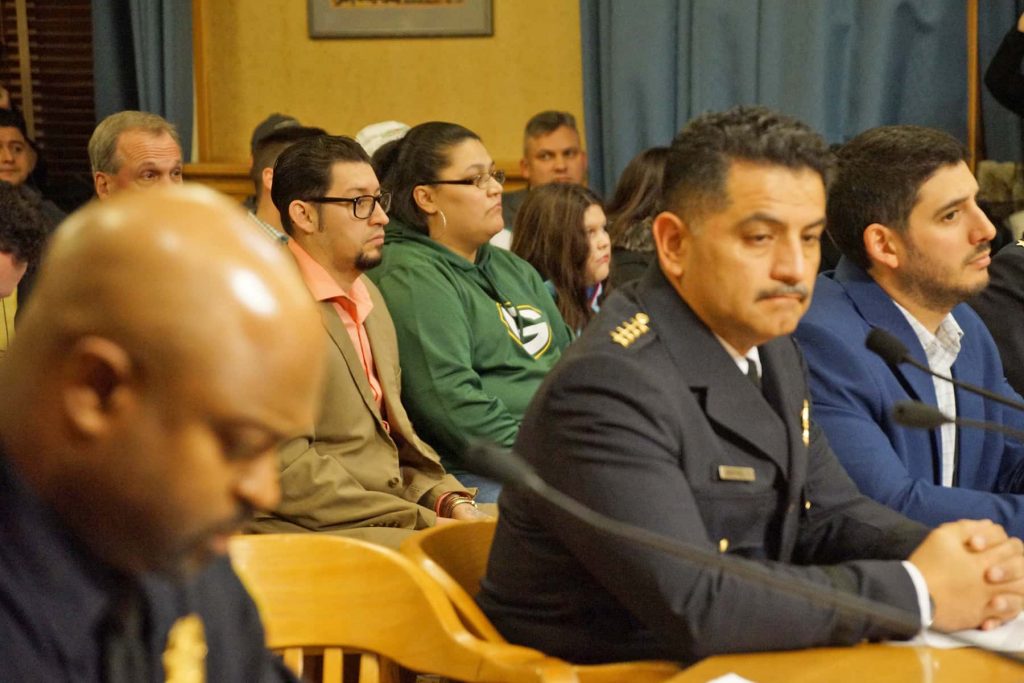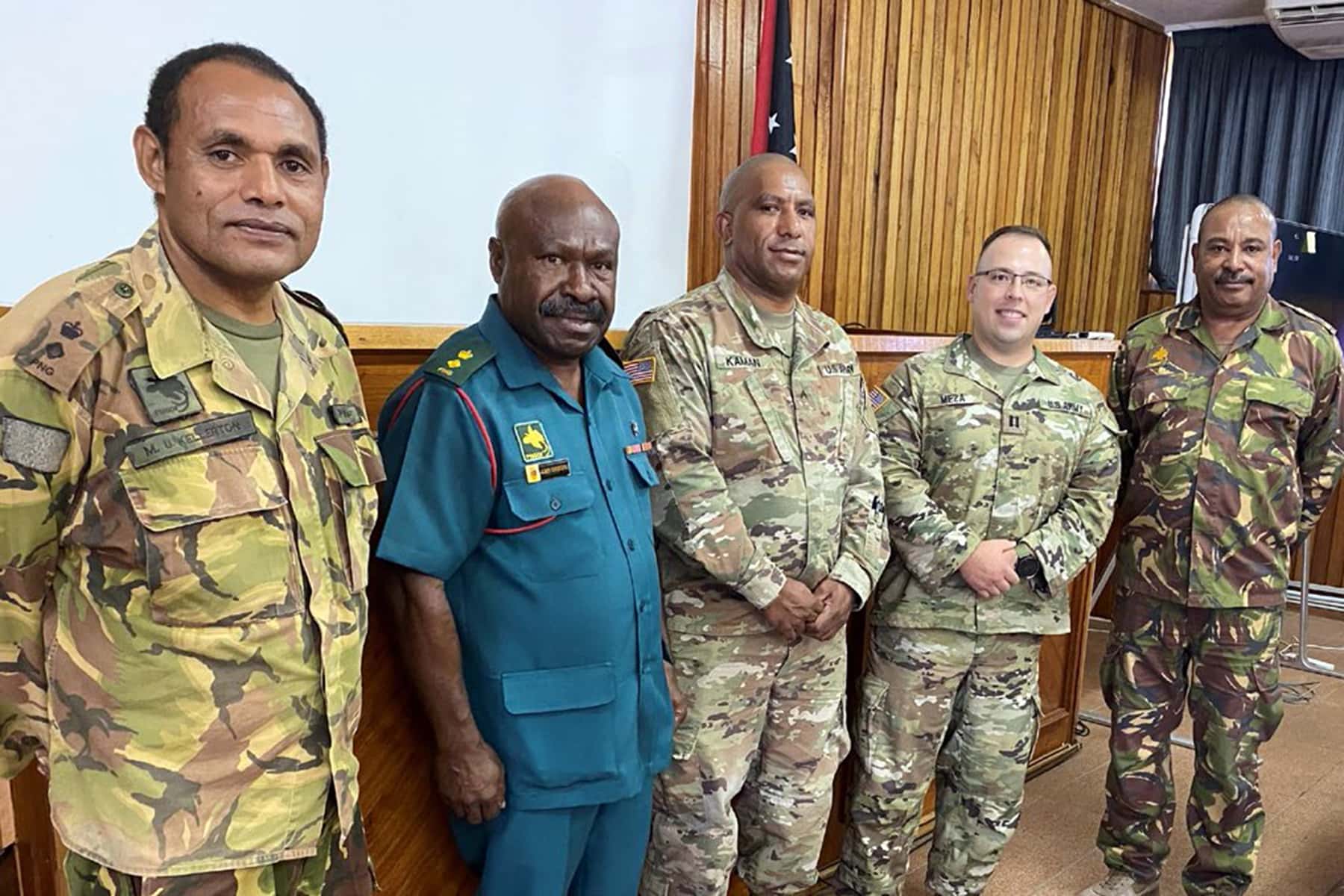
An Army National Guard officer from Wisconsin spent the better part of the last year forging the foundation for the Wisconsin National Guard’s new state partnership with Papua New Guinea.
Papua New Guinea and the Wisconsin National Guard are no strangers in partnership. During World War II, nearly the entirety of the Wisconsin National Guard deployed to New Guinea to fight the Japanese in brutal campaigns. The now famous 32nd “Red Arrow” Division suffered thousands of casualties fighting through New Guinea and the Philippines where it spent 654 days in combat – more than any other division in the war.
It fought several campaigns in New Guinea including the particularly bloody campaign to take Buna, and three Wisconsin National Guard Soldiers earned the Medal of Honor posthumously for their actions in New Guinea. That history and lineage is not forgotten in either Wisconsin or Papua New Guinea, and Meza expects the budding partnership to be mutually beneficial.
Captain Chris Meza, who previously served as the commander of Battery B, 1st Battalion, 120th Field Artillery, mobilized on a special assignment to United States Indo-Pacific Command. He ultimately spent five months in Papua New Guinea building relationships and helping establish a new partnership, amidst a global pandemic that has limited the ability to conduct traditional in-person exchanges and face-to-face interaction.
The pandemic did not stop the partnership from moving forward, and while some of the initial exchanges between Wisconsin and the Papua New Guinea Defense Force were virtual, Meza worked on the ground in Papua New Guinea from October 2020 through the end of March 2021.
In that time, Meza formed half of a two-person team from U.S. Indo-Pacific Command’s Task Force Oceania – known as a Pacific Augmentation Team – to establish invaluable relationships. The experience integrated him directly into Papua New Guinea’s culture. His partner was Cpl. Louie Kaman – a native of Papua New Guinea who is now a member of the U.S. Army – served as the team’s cultural liaison officer.
One of the highlights for Meza was driving the Highlands Highway from Lae to the Village of Minj, where he was fortunate to have experiences that few westerners do. It was in Minj where he fully integrated into the village. During his time there Meza enjoyed a traditional gathering and a meal known as the “mumu,” in which the community comes together to harvest a pig, and cook it in banana leaves with hot rocks. Meza assisted in preparing the meal, and even introduced them to some of his American techniques for cooking pork.
“Dispatching a pig is a rite of passage among the people, and I was put to the test,” Meza wrote in a report about his experiences. “We prepared and cooked one pig in the traditional fashion and the other was prepared in an American fashion. I had the privilege of harvesting, processing, cooking, and serving a pig to members of the tribe and family in a way I am familiar with. I am happy to report it was a big hit.”
It was also in Minj, where he participated in tribal conflict resolution and witnessed a dispute between two clans that ultimately concluded peacefully. Meza and his team worked directly with three clans in the village to explain his team’s role and their goals. Meza was also invited to the Papua New Guinea Defense Force’s family day, where he spent the time on an island building new relationships and getting more immersed in the nation’s rich culture and heritage.
“There’s plenty to do in (Papua New Guinea) if you’re looking for it,” Meza wrote in one of his reports. “We have purchased fresh produce in local markets, visited historical sites, and spent time with the (Australian Defense Force) and (Papua New Guinea Defense Force) away from the office.”
In addition, he assisted in multi-lateral planning and helped set the stage for future activities and exchanges between the Australian Defense Force, Papua New Guinea Defense Force, and U.S. forces. Other highlights of his deployment were participating in a parade and fishing with locals, an activity many Papua New Guineans rely on for sustenance or economically. Overfishing is a major concern in Papua New Guinea, and it represents one of the many areas in which the U.S. hopes to assist Papua New Guinea to help protect their natural resources.
“One of the most rewarding experiences we’ve had so far is a soccer match on Ela beach,” he wrote. “This event was put on by some of our friends in the (Australian Defense Force). They had been challenged by some of the local staff, who happened to be all female, to a short match. Later, we were told this was the first time any visitors had taken the time to engage socially with the locals.”
The Wisconsin National Guard learned in early 2020 that it had been selected to begin a new state partnership with Papua New Guinea as part of the National Guard State Partnership Program. The announcement came just as the world entered into the COVID-19 pandemic, which limited traditional partnership activities, which usually involve exchanges, delegation visits, and other events.
And while the Wisconsin National Guard looks forward to formally marking the beginning of this partnership and engaging in face-to-face interaction, the two new partners have engaged virtually on a number of topics already, in addition to Meza’s extended time on the ground in Papua New Guinea.
As the world emerges from the COVID-19 pandemic, those exchanges will increase. Meza’s individual tour concludes in late spring, after which he will return to Wisconsin. Continuing such partnerships is critical, and by respecting and experiencing the culture it enables service members to enhance engagements, better understand partner nations and increase the resiliency of the State Partnership Program.
“This partnership is a small piece of a larger puzzle that builds the stage for a free and open Pacific,” Meza said. “As a partner, the Wisconsin National Guard gets to play a direct role in aiding INDOPACOM’s strategic objectives. With this partnership the Wisconsin National Guard will have the opportunity to learn and grow in a place that holds significant history and lineage to the state and it’s military.”
Leader development and problem solving are two likely are areas in which both partners could likely share and grow. Wisconsin will benefit from the Papua New Guinea Defense Force’s ability to adapt and improvise to accomplish any mission.
“The most rewarding part of the experience was reaching a point where the Papua New Guinea Defense Force leadership would actively seek our help,” Meza said. “Help ranged from providing information and advice to setting up meetings with partners in the U.S. Most were small, but the fact they sought us out spoke volumes to how we were doing.”
Joe Trovato
Chris Meza

